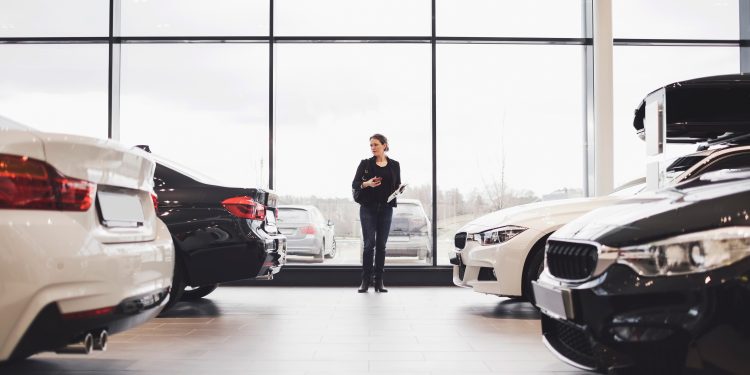Thanks to the digital age, myriad breakthroughs have been achieved that benefit all. This period has ultimately impacted many aspects of our lifestyles – such as how we communicate and go shopping, just to mention a few.
However, one of the particular industries that has undergone a massive transformation is the car dealership industry. With the internet at our fingertips, we no longer have to spend hours perusing car lots and haggling with salespeople. Instead, we can research, compare, and even purchase cars online.
Even as Mary Barra once said, “I have no doubt that the auto industry will change more in the next five to ten years than it has in the past 50.”
As a result of the shift in consumer behavior, car dealerships have had to adapt to stay competitive. They must now provide top-notch online experiences, personalized customer service, and streamlined purchasing processes.
So, let’s hit the road together and explore how the digital age has turbocharged the car dealership experience, opening up a whole new world of possibilities for both customers and entrepreneurs alike.
The Changing Landscape of Car Dealerships
Obviously, one of the leading retail industries in America has been the auto industry for years. This has prompted the industry to transform how it handles its business. In fact, according to ABC News, more consumers now buy cars online.
These changes have significantly impacted the way dealerships operate and interact with customers. Here are some critical changes in the landscape of car dealerships:
Online Presence and Digital Retailing
Car dealerships have recognized the importance of establishing a strong online presence. They now utilize websites, online marketplaces, and digital advertising to attract customers. Unlike in the past, customers no longer need to travel to a dealership for detailed vehicle information – they can now conveniently access it from home!
Dealerships also invest in digital retailing tools such as e-commerce websites, online financing and leasing options, and mobile apps for easy access. These platforms provide more convenience to customers by enabling them to view a dealership’s inventory, customize payment options, and even purchase cars remotely.
Shift to Electric and Hybrid Vehicles
With growing public awareness of environmental protection, car dealers have expanded their inventory to offer various electric and hybrid vehicle models. Manufacturers invest heavily in electric vehicle technology, and dealerships adjust their inventories and sales strategies to meet the changing demand.
Data-Driven Marketing
Dealerships leverage data analytics and customer relationship management (CRM) systems to personalize their marketing efforts. They can target specific demographics and tailor promotional offers based on customer preferences and behaviors. This data-driven approach helps dealerships optimize their marketing strategies and enhance customer engagement.
Enhanced Customer Experience
Car dealerships are placing a stronger emphasis on providing exceptional customer experiences. They invest in sales and service staff training programs, focus on transparency, and offer amenities like comfortable waiting areas and complimentary Wi-Fi.
In addition, dealers like Dyler utilize video chat solutions to allow customers to have face-to-face conversations with salespeople from anywhere in the world. This helps build customer trust and loyalty, as customers feel they’re being given personal attention. The goal is to create a positive and memorable experience that fosters customer loyalty.
Subscription and Mobility Services
Some dealerships are exploring subscription and mobility services to cater to changing customer needs. These services offer flexible vehicle access through subscriptions or car-sharing programs, eliminating the need for traditional ownership. It appeals to customers seeking flexibility and alternatives to long-term ownership.
Online Reviews and Reputation Management
The influence of online reviews and reputation management has grown significantly. Customers now rely on reviews and ratings to make purchasing decisions. Car dealerships have become more attentive to their online reputation and actively engage with customers to address concerns and maintain positive feedback.
Shift in Dealer-Consumer Relationship
The traditional dealer-consumer relationship has evolved. Customers are more informed and empowered due to online research and reviews. Dealerships are adapting by focusing on building trust, providing transparent information, and offering exceptional customer service. The dealership’s role has shifted from selling vehicles to becoming a trusted advisor and service provider throughout the ownership journey.
Challenges of Car Dealership Transformation
As perfect as digital transformation has been for car dealerships, some challenges have come with it. Some of which are:
Overcoming Resistance from Staff Members
Naturally, the number one enemy of technology is humans because of the fear of the unknown. As a result, some car dealership staff may resist digital transformation because they fear losing out on job security and learning new processes. They tend to fear technology will replace them and even reduce their value.
Data Security
According to an FBI report in 2022, 800,944 cybercrime complaints were received by the public, with about a $10.2 billion loss in 2022 alone. Considering the sensitive customer data handled by car dealerships, their IT teams must ensure that all customer information is secure and protected from malicious attacks.
Therefore, dealerships must invest in cybersecurity solutions and educate their staff about best practices to protect customers’ private information.
Investment in Technology and Resources
The last challenge of digital transformation we want to discuss is the need for dealerships to invest in technology and resources. They must invest money in purchasing digital tools and the time to build a custom system that meets their needs. Aside from money, it also requires skilled developers with software engineering and development expertise to be successful.
Although this is a challenge for dealerships, ensuring they can provide the best customer experience possible and remain competitive is essential.
Final Thoughts
It’s undeniable that digital transformation has revolutionized the car dealership industry by providing customers with more convenience, more options, better service, and improved customer loyalty.
Although some challenges come with this transformation, dealerships should be willing to invest in technology and resources to keep up with the digital age and remain competitive.





